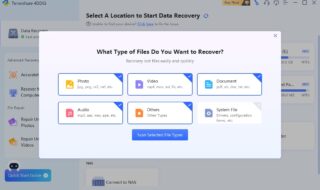In today’s digital world, software development services are essential for businesses of all sizes that want to stay ahead of the curve. Customized software can help businesses to automate tasks and create new products and services. The global custom software development market was worth $29.29 billion in 2022 and will continue to grow in the following years.
The fintech industry, despite the recent decline in investment activity, remains vibrant and full of new ideas, with new solutions and services being created to meet changing consumer needs. The Americas have the most fintech startups in the world, with 11,651 as of May 2023. Europe, Middle East, and Africa region (EMEA) follows with 9,681 startups, and the Asia Pacific region has 5,061, making fintech an attractive and promising domain for software development services.
Contents
101 on custom software development services
Custom software development services are used to build a broad range of software solutions, including:
- Enterprise resource planning (ERP) software that assists companies in managing all aspects of their operations, from accounting and human resources to inventory and manufacturing.
- Customer relationship management (CRM) software, assisting businesses to track and manage customer interactions.
- Business intelligence (BI) software serves companies to collect, analyze, and visualize data to make better decisions.
- Web applications allow businesses to deliver products and services to customers.
- Mobile applications enable companies to deliver products and services to customers on smartphones and tablets.
Custom software development services can offer several benefits to businesses. They increase efficiency by task automation and streamlining workflows, which can lead to significant gains, help businesses reduce costs by eliminating the need to purchase multiple software products or by customizing existing software to meet their specific needs. Custom software helps boost revenue by providing companies with the tools they need to improve their sales and marketing efforts or by enabling them to launch new products and services. Moreover, it can be designed to meet the specific security requirements of businesses, which can help protect their data from cyberattacks.
How to choose a software development services company?
You can consider the following factors while choosing the right software developers:
- Experience: choose a provider with experience in developing the type of software solution that you need.
- Portfolio: review the provider’s portfolio of previous work to get an idea of their style and capabilities.
- Methodology: ask about the provider’s software development methodology. Make sure that they use a methodology that is compatible with your business and that will help you to achieve your goals.
- Cost: analyze offers from multiple companies to compare prices.
- Communication and customer service: ensure the provider is responsive and communicative and has a good reputation for customer service.
Custom software development services can be a valuable investment for businesses of different scales. By choosing the right provider and developing a custom-made software solution that meets your needs, you can set your business up for success in the digital age.
Financial reporting software
One more particular example of fintech industry software development is financial reporting software. It helps businesses generate financial reports, such as balance sheets and income statements. Reports are essential for businesses to track financial performance, comply with financial regulations, and make informed decisions.
Financial reporting software can range in complexity from simple spreadsheet templates to sophisticated enterprise resource planning systems. The type of software right for a business will depend on its size, complexity, and industry.
Key features of financial reporting software:
- Data import and integration: the ability to import and integrate financial data from various sources, like accounting software and customer relationship management systems.
- Report generation: getting various financial reports, such as balance sheets, income statements, documents concerning cash flow, and trial balances.
- Customizable reports: creating records that meet the specific needs of the business.
- Collaboration and sharing: the ability to collaborate and share reports with other users.
- Security: protection of the financial data from unauthorized access.
Financial reporting software benefits

Financial reporting software can help businesses in various ways. It offers:
- Improved accuracy of the financial reports by automating data entry and calculations.
- Increased efficiency, saving time and resources by automating the financial reporting process.
- Enhanced visibility of the financial performance by providing timely and accurate reports.
- Improved decision-making helps companies make better decisions by providing insights into their financial performance.
- Reduced risk by allowing companies to identify and mitigate financial problems early on.
Financial reporting software can be a valuable tool for businesses of all sizes. Choosing and implementing the right software improves businesses’ accuracy and efficiency of their financial reporting, helps to gain greater visibility into their financial performance, and makes better decisions.
Software security testing
Software security testing is an essential stage of the software development lifecycle. Regarding financial reporting software, testing ensures that the company’s data will stay protected, there are no opportunities for breaches, and software is resistant to cyberattacks.
Keeping in mind software security testing can be performed at different stages of the software development lifecycle, including:
- Requirements gathering and analysis: security requirements should be identified and analyzed at the early stages of the software development process, ensuring that security is considered throughout the work.
- Design: security considerations should be integrated into the design of the software to handle errors gracefully.
- Implementation: security best practices should be followed during the software implementation, including using secure coding and validating user input.
- Testing: software security testing should be performed throughout the qa process to identify and remediate security vulnerabilities.
- Deployment: security considerations should be addressed when deploying the software, for example, configuring the software securely and monitoring it for security threats.
Software security testing is beneficial from many points. It can help identify and remediate security vulnerabilities before attackers exploit them and protect businesses from financial losses and reputational damage. By performing software security testing, businesses can demonstrate their compliance with industry-specific regulations and requirements. Moreover, customers are more likely to trust businesses that take steps to protect their data. By performing software security testing, businesses can show their customers they are committed to security.
Wrapping Up
Overall, the fintech market is poised to keep growing, thanks to ongoing technological advances, changing consumer habits, and supportive regulations. As a fintech industry sample, financial reporting software represents an efficient solution for businesses of different scales. Custom software development services in fintech can provide tailored solutions for companies, boosting their revenues and increasing efficiency. Due to thorough software security testing, financial software can boast data safety and cyberattack resistance.



